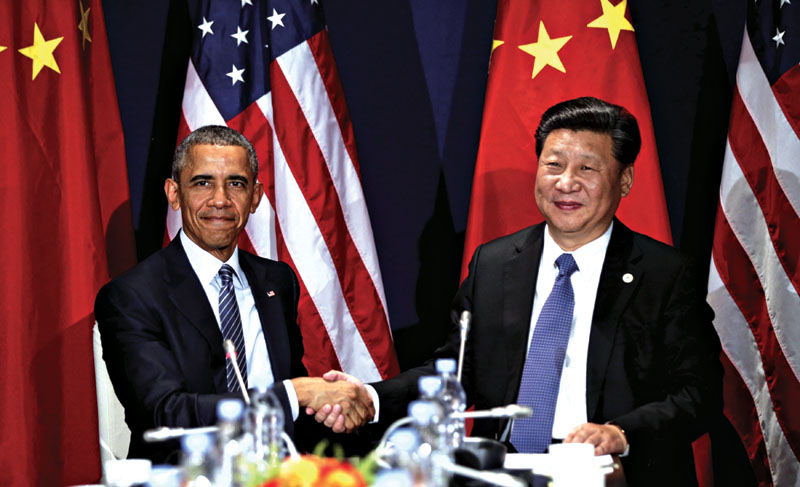World leaders launch bid for climate break
Paris, November 30
World leaders launched an ambitious attempt today to hold back the earth’s rising temperatures, with French President Francois Hollande saying the world was at a “breaking point” in the fight against global warming.
Some 150 heads of state, including US President Barack Obama and his Chinese counterpart Xi Jinping, will urge each other to find common cause in two weeks of bargaining to steer the global economy away from its dependence on fossil fuels.
They arrived at United Nations climate change talks in Paris armed with promises and accompanied by high expectations. After decades of struggling negotiations and the failure of a previous summit in Copenhagen six years ago, some form of landmark agreement appears all but assured by mid-December.
Warnings from climate scientists, demands from activists and exhortations from religious leaders like Pope Francis, coupled with major advances in cleaner energy sources like solar power, have all added to pressure to cut the carbon emissions held responsible for warming the planet.
Most scientists say failure to agree on strong measures in Paris would doom the world to ever-hotter average temperatures, bringing with them deadlier storms, more frequent droughts and rising sea levels as polar ice caps melt.
Facing such alarming projections, the leaders of nations responsible for about 90 per cent of the world’s greenhouse gas emissions have come bearing pledges to reduce their national carbon output, though by different rates.
For some, it has already become a pressing issue at home. As the summit opened in Paris, the capitals of the world’s two most populous nations, China and India, were blanketed in hazardous, choking smog, with regulators in Beijing asking factories to limit output and halting construction work.
Success in agreeing what would be by far the strongest international pact yet to commit both rich and developing nations to the fight against global warming “is not yet achieved, but it is within reach,” French Foreign Minister Laurent Fabius, chairman of the meeting, told delegates.
On the eve of the summit, hundreds of thousands of people from Australia to Paraguay joined the biggest day of climate change activism in history, telling world leaders there was “No Planet B” in the fight against global warming.
“To resolve the climate crisis, good will, statements of intent are not enough,” Hollande said. “We are at breaking point.”
The leaders gathered in a vast conference centre at Le Bourget airfield, near where Charles Lindbergh landed his Spirit of St Louis aircraft in 1927 after making the first solo trans-Atlantic flight, a feat that helped bring nations closer.
Whether a similar spirit of unity can be incubated in Le Bourget this time is uncertain. In all, 195 countries are part of the unwieldy negotiating process, espousing a variety of leadership styles and ideologies that has made consensus elusive in the past. Key issues, notably how to divide the global bill to pay for a shift to renewable energy, are still contentious.
Signaling their determination to resolve the most intractable points, senior negotiators sat down on Sunday, a day earlier than planned, to begin thrashing out an agreement. They hope to avoid the last-minute scramble and all-nighters that marked past meetings.






